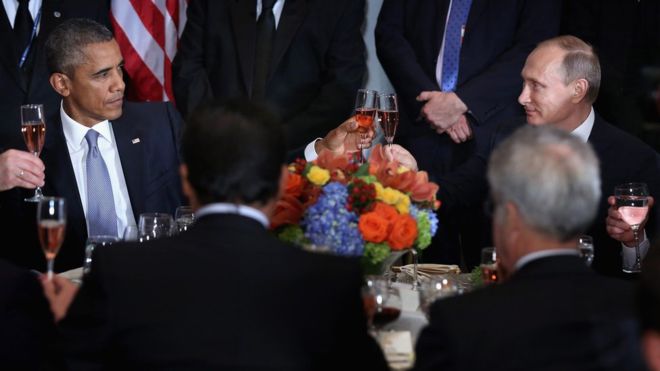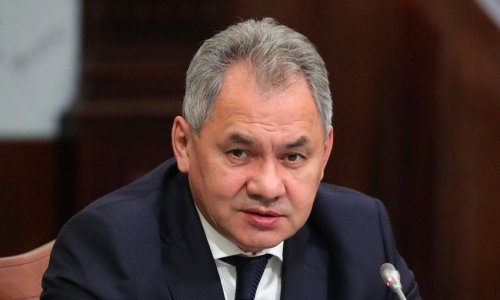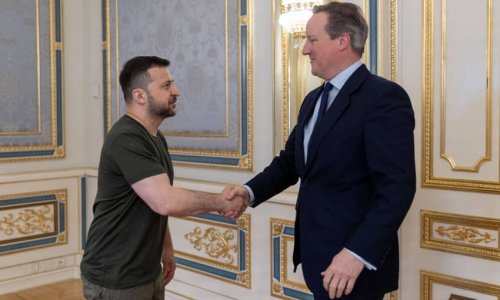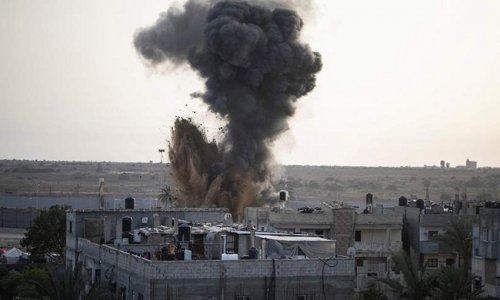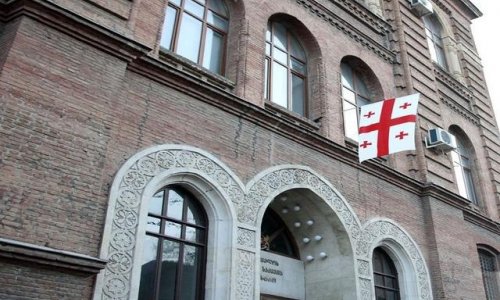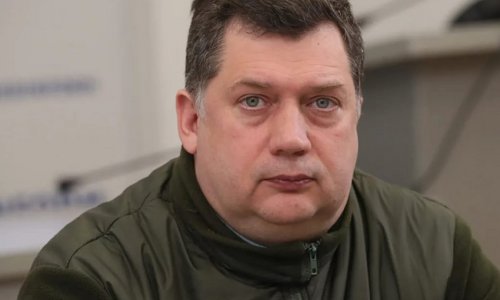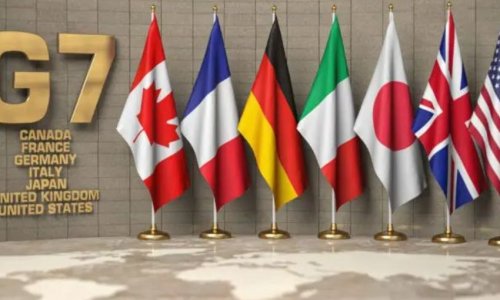There's no bigger world stage than the United Nations General Assembly.
A record number of presidents and prime ministers are here for the opening of this year's 70th annual session.
Each has their own national interest and agenda to pursue, of course, but few dispute that the crisis which overwhelms all others is the agony of Syria, and the Syrians.
But, and it is a very big but, the UN's dominant body, the Security Council, has been impotent in the face of more than three years of civil war.
That's precisely because the most powerful members of the Security Council, Russia and the United States, are on opposite sides in the Syrian war.
President Putin increasingly arms and supports Syrian President Bashar al-Assad and his embattled government in Damascus. President Obama and his Western allies call Mr Assad a war criminal and a butcher.
When Mr Obama sat down with Mr Putin on Monday night, after almost a year without face-to-face contact, expectations were already low.
In the event, the two leaders opened with a brief, unsmiling handshake for the cameras. They barely made eye contact, hinting at the scale of the gulf between them, before disappearing for talks.
An American official said the two men met for about 90 minutes and apparently spent half their time discussing Syria, the other half on Ukraine.
It was a "business-like back and forth. I think they worked through a lot of different issues. This was focused".
The Americans say the two sides fundamentally disagreed on the role that President Assad would play in resolving the civil conflict there.
The Russians see Mr Assad as a bulwark against extremists; the Americans see him as continuing to fan the flames of sectarian conflict in Syria.
So how about this for understatement? "I think the Russians certainly understood the importance of there being a political resolution in Syria and there being a process that pursues a political resolution," said the American side.
"We have a difference about what the outcome of that process would be," particularly as it relates to Mr Assad, they said.
Now for the Russian version of what happened.
There's a fascinating contrast here. President Putin himself spoke to Russian reporters, as if to emphasise the confidence he apparently feels about his position. He told them that Russia had not ruled out air strikes in support of Syrian forces fighting Islamic State militants and was thinking about how to strengthen further the Syrian army.
Mr Putin pointedly said any Russian strikes would respect international norms such as a request from Syria's government, unlike the strikes carried out by the US-led coalition.
An extraordinary situation is now emerging, with both sides - American and Russian - apparently directing their militaries to talk to each other to avoid conflicts between their operations in Syria: in other words, making a terrible and very risky mistake and fighting each other.
The Americans sounded conciliatory, insisting that the United States does not view Russia's military build-up in Syria as necessarily destructive to a positive outcome in Syria, provided Moscow's military are solely used to fight the extremists of so-called Islamic State (IS).
"That might be OK," the official suggested. But if the Russians used their might to continue to strengthen Mr Assad's battle against his own people, that would be negative.
Does any of this imply a meeting of minds between the two presidents? Far from it. Nothing either side said appears to bring the prospect of peace any closer.
Who is the biggest enemy?
Still, it's clear the West is willing to climb down from its previous insistence that President Assad had to go before - not during - any process of transition to end the civil war.
That concession is supremely distasteful to the United States, the UK and their allies. It also seems to contradict the Western logic which argues that Mr Assad cynically and deliberately gave space to extremists in Syria, including IS.
But the real question may be: Who is now the larger enemy of the West? From an American perspective, it's no longer Mr Assad, however much he may profit from the particular horrors IS has unleashed. Mr Obama didn't quite admit that, but he came close.
All of which apparently leaves Washington somewhat reliant on Russia's political co-operation, hoping Moscow will eventually ease Mr Assad from power, even if they clearly won't drive him out.
Diplomatically, it feels like a horrible mess. Mr Assad continues to play with awful skill what looked originally, more than three years ago, like a very bad hand of cards. And there does not yet seem to be any prospect of reviving or recasting the series of Syrian peace talks which have so far led precisely nowhere.
Part of the analysis in Washington, and in Whitehall, is that Mr Putin has been weakened by overextending himself in Crimea and in eastern Ukraine, as well as by the spectacular fall in the oil price on which Russia's failing economy so heavily depends.
The argument goes that he should now be ready to drop Mr Assad - another liability - as an ally in Syria.
The problem for the United States and her allies is that Mr Putin does not seem to be following that script.
(BBC)
www.ann.az
Follow us !

